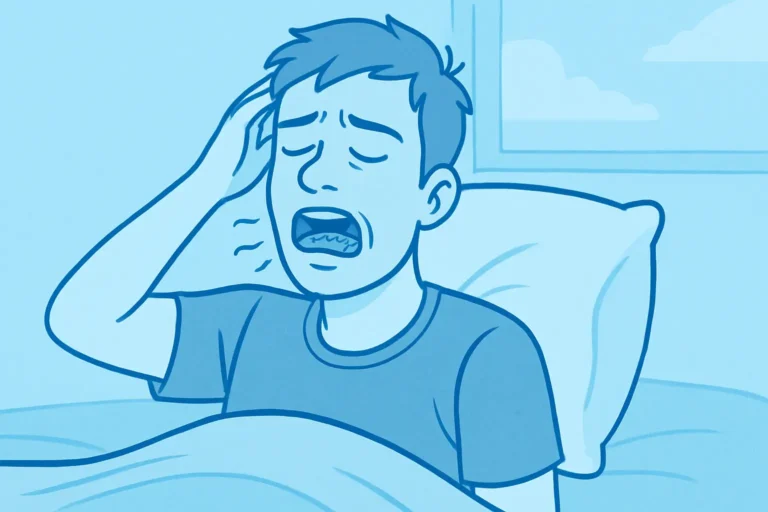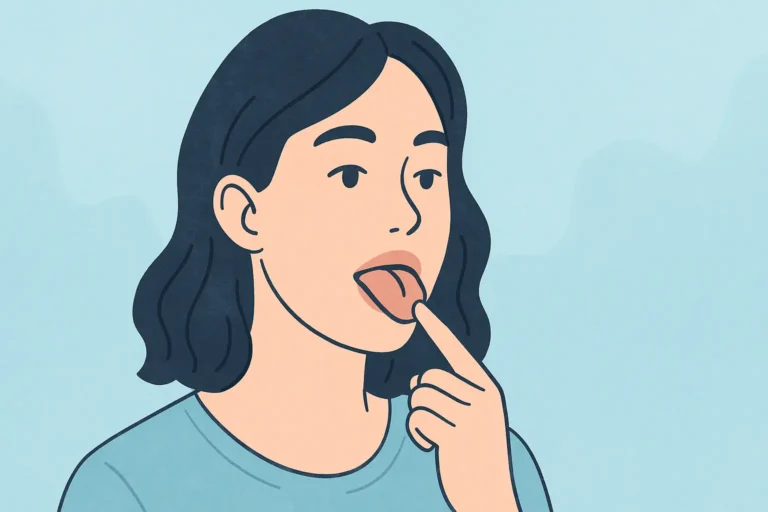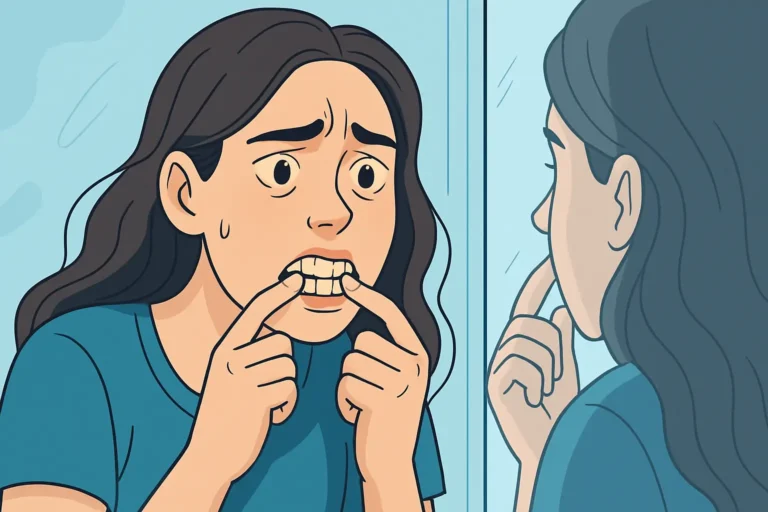Does Dry Mouth Cause Bitter Taste?
Yes, dry mouth can definitely cause a bitter taste in your mouth. When your mouth doesn’t make enough saliva, things start to feel off—including how food tastes and how your mouth feels overall.
Let’s break down why this happens, what it means for your health, and how you can fix it.
Why Dry Mouth Affects Taste
Saliva does more than just keep your mouth wet. It actually plays a big role in how things taste.
When you chew food, saliva helps break it down and carry those flavors to your taste buds. If your mouth is dry, that process doesn’t work as well.
Also, dry mouth can allow bacteria to grow. And when bacteria builds up on your tongue or in your gums, it can leave a weird or bitter taste behind.
What Causes Dry Mouth in the First Place?
There’s no single cause. In fact, it can come from a bunch of different things. Some common ones include:
- Medications – A lot of drugs list dry mouth as a side effect. This includes antidepressants, antihistamines, and even blood pressure meds.
- Dehydration – If you’re not drinking enough water, your mouth can dry out pretty fast.
- Mouth breathing – If you sleep with your mouth open, you might wake up with that dry, bitter feeling.
- Health conditions – Diabetes, Sjögren’s syndrome, or even anxiety can lead to dry mouth.
The important thing is figuring out what’s causing it for you.
The Bitter Taste Explained
A bitter taste is one of the most common signs that your mouth is dry.
It’s not always there. Sometimes it shows up when you wake up. Other times it lingers all day, especially after meals or coffee.
You may also notice:
- A metallic or sour taste
- Bad breath
- Sticky or dry feeling in your mouth
- Cracks at the corners of your mouth
All of these signs point to the same root issue—low saliva.
Is It Dangerous?
Not usually, but it can get worse if you ignore it.
Your mouth needs saliva to wash away bacteria. Without it, you’re more likely to get cavities, gum disease, or even oral thrush (a type of yeast infection).
Plus, that constant bitter taste can mess with your appetite. Some people even stop enjoying their favorite foods.
So no, it’s not life-threatening—but it’s definitely something worth paying attention to.
How to Know If You Have Dry Mouth
Sometimes it’s obvious—your mouth just feels dry.
But other times, it’s more subtle. Here are a few signs:
- You always feel thirsty
- You have trouble swallowing dry foods
- Your tongue feels rough or dry
- Your lips are cracked
- You need water nearby all the time
If you’re dealing with any of that and a bitter taste, there’s a good chance dry mouth is the cause.
Other Possible Causes of a Bitter Taste
It’s also worth knowing that dry mouth isn’t the only cause of bitterness in the mouth.
Other possible reasons include:
- Acid reflux
- Infections (like sinus or oral infections)
- Vitamin deficiencies (especially B12)
- Smoking
- Hormonal changes (like during pregnancy)
But if those don’t apply and your mouth feels dry most of the time, then dry mouth is likely to blame.
Simple Fixes to Try at Home
Luckily, there are a few easy things you can try to get rid of the bitter taste and feel better.
1. Drink more water.
This sounds basic, but it helps. Sip water regularly throughout the day—not just when you’re thirsty.
2. Chew sugar-free gum.
It helps stimulate saliva and can freshen up your mouth at the same time.
3. Avoid mouth-drying foods and drinks.
That includes alcohol, coffee, and salty snacks. All of those can make dry mouth worse.
4. Use a humidifier at night.
Especially if you sleep with your mouth open. It keeps the air moist and helps your mouth stay hydrated.
5. Try a dry mouth spray or mouthwash.
There are products made specifically for dry mouth. Look for ones that are alcohol-free.
When to See a Doctor or Dentist
If the bitter taste sticks around for more than a few weeks, or if you’re getting other symptoms like burning or sore spots, it’s time to talk to a professional.
A doctor can check if it’s caused by a medication or health issue. A dentist can check your mouth for signs of infection, cavities, or thrush.
Either way, don’t ignore it—especially if it’s bothering you daily.
Can Dry Mouth Go Away on Its Own?
Sometimes yes, sometimes no.
If it’s caused by something temporary—like dehydration or mild stress—it might clear up once you drink more water or calm down.
But if it’s from a medication or ongoing health problem, it may stick around until you deal with the root cause.
That’s why it’s important to track when the dry mouth shows up, how long it lasts, and what seems to make it worse.
Things That Make It Worse (You Might Not Realize)
You might be doing things that dry out your mouth without even knowing it. Here are a few:
- Drinking a lot of caffeine – Even tea can dry your mouth out.
- Using alcohol-based mouthwash – These feel fresh but can leave your mouth even drier.
- Eating too much sugar – It feeds bacteria, which adds to the bitter taste.
- Smoking or vaping – Both are known to cause dry mouth and affect your taste buds.
Just cutting back on these can make a big difference.
I know someone who started getting a weird, bitter taste every morning. It turned out she was breathing through her mouth at night because of allergies. Once she got that under control—and started using a humidifier and sipping water before bed—the taste went away in a few days.
Sometimes it really is something that simple.
What to Eat If You Have Dry Mouth and a Bitter Taste
It can be tough to enjoy food when your taste is off. But here are some things that are easier to eat and won’t dry you out more:
- Soft fruits like melon or banana
- Smoothies
- Cooked veggies with olive oil
- Oatmeal or porridge
- Soups and stews
- Boiled rice or mashed potatoes
Avoid spicy, crunchy, or salty foods until your mouth feels better.
Final Thoughts
Dry mouth is a common reason for a bitter taste, especially if it comes with that sticky or dry feeling. It’s annoying, but usually fixable.
Try drinking more water, chewing sugar-free gum, and avoiding things that dry your mouth out. If the problem sticks around, talk to your doctor or dentist.
Your mouth shouldn’t feel bitter all the time—and you don’t have to just live with it.







